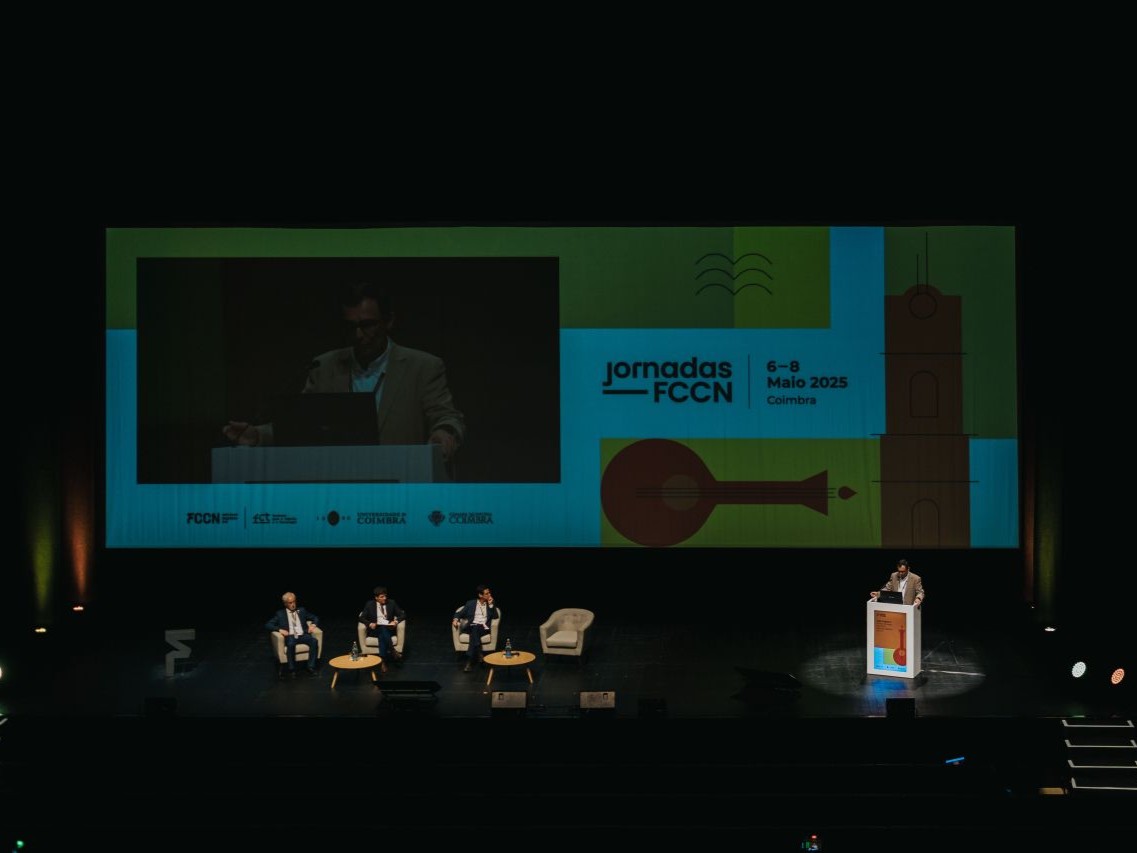The 2025 edition of the FCCN Conference brought together nearly 900 participants at the Convento de São Francisco in Coimbra for three days of sharing, learning, and collaboration. Under the motto of innovation and technological advancement, the event—organized by FCCN, the digital services unit of the Foundation for Science and Technology (FCT)—served once again as a central platform for the national academic and research community.
The opening session included representatives from the FCT, the University of Coimbra, and the Coimbra City Council, emphasizing the importance of digital infrastructure and the role of higher education institutions in the knowledge society. João Gabriel Silva, keynote speaker and professor at the University of Coimbra, delivered a retrospective on the ENER 1000—the first Portuguese computer—highlighting its pioneering impact.
Throughout the three days, numerous sessions focused on cutting-edge technological themes. These included Open Access, science data management, secure digital certificates, multimedia, and scientific computing services. Several discussions centered around the use of Artificial Intelligence in academia, research, and innovation.
Among the key highlights was the launch of IAedu, a new FCCN digital service that offers free access to AI models for researchers and academic institutions. Hosted on Microsoft’s Azure platform, IAedu will soon begin its pilot phase with selected institutions and aims to integrate diverse AI tools. Microsoft’s Manuel Dias also presented on the role of generative AI in Higher Education, particularly in areas such as critical thinking, writing, and problem-solving.
The Innovation Hub, a new feature of this year’s conference, provided an informal platform for participants to share experiences, projects, and ideas. The talks ranged from video processing optimization using GPUs to sonification of scientific data, showcasing the creativity and technical innovation emerging within the academic digital ecosystem.
On the final day, a live demonstration on the Deucalion supercomputer brought together HPC, quantum simulation, and biomedical modeling with AlphaFold3 and optimized LLMs—highlighting the integration of frontier computing in scientific applications.
With record participation, the FCCN 2025 Conference reaffirmed its relevance as a cornerstone for Portugal’s digital transformation in science and education. The next edition will take place in Porto in 2026.
